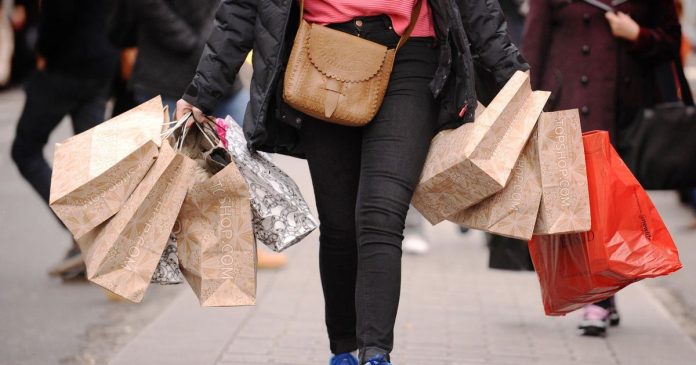Britain is headed for a potential crisis over rising raw material, labour, transport and energy costs.
The East Midlands Chamber has warned that the rise in the cost of living is causing a perfect storm of higher prices coupled with households having to spend less due to rising energy bills.
UK inflation hit a 30-year high at over 5.4 percent in December.
The ONS said it had been boosted by food and soft drink prices over the past month, with the cost of restaurants and hotels, furniture and household goods, and clothing and shoes also rising.
Household finances are being squeezed across the board as gas and electricity tariffs have risen staggeringly while supply chain problems are driving up costs across the economy.
The Bank of England has forecast inflation for April at 6 per cent – not far below the 7.1 per cent recorded in March 1992 when Norman Lamont was still in charge of the country’s finances.
The figures come amid mounting pressure on the government to help with a staggering increase in gas and electricity bills, forcing vulnerable people to choose between heating their homes and buying groceries.
East Midlands Chamber (Derbyshire, Nottinghamshire, Leicestershire) chief executive Scott Knowles said the impact on the UK economy is a real concern as the nation slowly moves out of the pandemic.
He said: “It feels like we are perilously close to a very real cost crisis which, if left unabated, could have profound negative implications for the region’s economic recovery.
“Companies are particularly concerned about rising energy costs.
“In the East Midlands we have a high proportion of energy intensive companies in sectors like manufacturing and engineering, so any price increase will eat into their margins.
“This ultimately affects their ability to create local jobs and wealth, as well as raise wages for their employees, who will bear the brunt of rising inflation at home.
“Remember that these people are also customers of other businesses and local services, so their reduced purchasing power has a huge impact.
“Our latest quarterly economic survey shows the concern many of our region’s businesses are feeling, with the proportion of those worried about price increases – from raw materials to staffing – rising to 62 percent from 46 percent between the third and fourth quarters of the past year.
“Some of these are global pressures – the recovery from the 2020 slowdown is putting pressure on material supplies from China to the US – and are beyond our own control, but others are of our own making.
“The forthcoming increase in social security, the forthcoming hike in energy price caps and the reversal of VAT cuts for the hospitality sector mean this problem will not go away as the UK Chamber of Commerce forecasts inflation to rise well above 6 per cent by April – causing businesses will drive up pressure to raise prices further.
“It is vital that the Government’s Supply Chain Advisory Group and Industry Taskforce provide real solutions to the supply and labor shortages that continue to drive upward pressure on consumer prices, while Westminster must be careful not to add costs on Businesses and individuals for the rest of this Parliament.”
Chancellor Rishi Sunak said: “I understand the pressures people are facing regarding the cost of living and we will continue to listen to people’s concerns as we have throughout the pandemic.”
Pantheon Macroeconomics’ Samuel Tombs said December’s inflation numbers left the Bank of England “little choice but to hike rates again in February”.
He said the CPI is likely to peak “a little over” 6 percent in April.
He said: “Nonetheless, we continue to expect CPI inflation to decline rapidly after April and eventually fall below the 2 percent target in 2023.”

